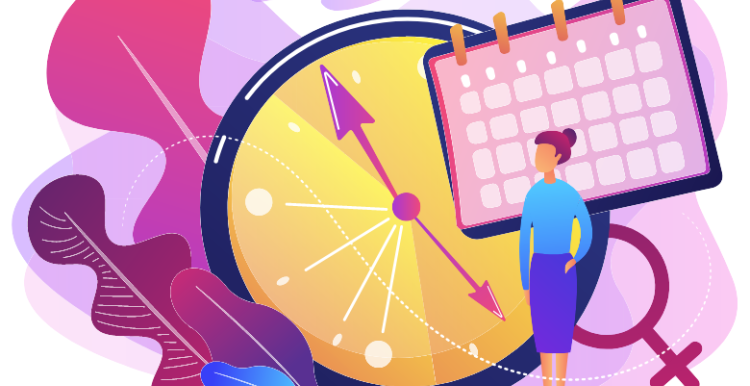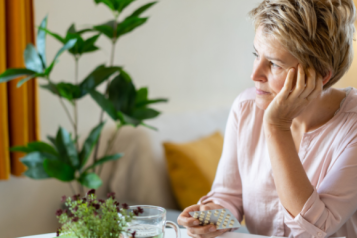Menopause Awareness

Menopause is when your periods stop due to lower hormone levels. This usually happens between the ages of 45 and 55.
It can sometimes happen earlier naturally, or for reasons such as surgery to remove the ovaries or uterus, cancer treatments or a genetic condition.
Perimenopause is when you have symptoms before your periods have stopped. You reach menopause when you have not had a period for 12 months.
Common symptoms of menopause and perimenopause
Menopause and perimenopause symptoms can have a big impact on your daily life, including your relationships, social life and work.
It can feel different for everyone. You may have a number of symptoms or none.
- Changes in your menstrual cycle this can show over time
- Hot flushes
- Palpitations your heart can start racing
- Poor sleep or no sleep at all in some cases
- Fatigue and no motivation can leave you feeling inadequate
- Brain fog
- Joint pain
- Headaches / Migraines
- Weight gain
- Irritability /mood swings
- Eyesight changes
- Tinnitus / Vertigo
- Vaginal dryness
- Gum and mouth problems
- Allergies and skin irritations
- Bloated
- Feeling low and anxious
- Hair loss
- Low libido
- Restless legs
Things you can do
Eating well, exercising and looking after your mental wellbeing can help symptoms during perimenopause and menopause.
- Get plenty of rest
- Eat a healthy diet
- Have calcium rich food like milk and yoghurt to keep your bones healthy
- Exercise regularly
- Do relaxing things like yoga, tai chi or meditation
- Talk to a doctor before taking herbal supplements or complementary medicines
What are the treatment options for menopause?
The main treatment for menopause and perimenopause symptoms is hormone replacement therapy (HRT), which replaces the hormones that are at low levels. There are, however, other treatments available if you cannot, or choose not to, have HRT:
- Testosterone gel for reduced sex drive - If HRT does not help restore your sex drive, you might be offered a testosterone gel or cream. It can help improve sex drive, mood and energy levels.
- Oestrogen for vaginal dryness and discomfort - Your vagina may become dry, painful or itchy as a result of the menopause and perimenopause. A GP can prescribe oestrogen treatments you can insert into your vagina, as a tablet, cream or ring.
- Hot flushes and night sweats - There are some medicines that can help with hot flushes and night sweats.
- Cognitive behavioural therapy (CBT) - A talking therapy that can help with low mood, anxiety and some physical symptoms.
More information on treatment options can be found here on the NHS website.
Help and support:
- Women's Health Concern
- Menopause Matters
- The Menopause Charity
- Daisy Network for premature menopause
- Queermenopause for people who identify as LGBT+
- Menopause Balance app
-
Menopause Chat - Prestwich Library


